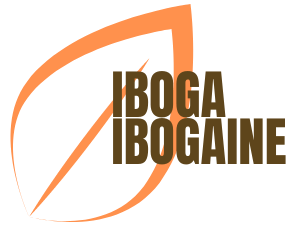Ibogaine Dosage Guide: Finding the Right Amount
Ibogaine Dosage Guide: Finding the Right Amount
Ibogaine, derived from the Tabernanthe iboga plant native to West Africa, has garnered attention for its potential in treating addiction and mental health disorders. However, understanding the appropriate dosage is crucial for safety and effectiveness. This guide will delve into the nuances of ibogaine dosage, helping individuals navigate this powerful psychedelic substance responsibly.
Understanding Ibogaine
What is Ibogaine?
Ibogaine is a psychoactive alkaloid found in the roots of the Tabernanthe iboga plant. It has been used traditionally in spiritual ceremonies and rituals among indigenous communities in Africa.
Mechanism of Action
Ibogaine acts on various neurotransmitter systems, including serotonin and dopamine, while also interacting with opioid receptors. Its complex mechanism of action contributes to its therapeutic potential in addiction treatment.
Factors Influencing Dosage
Weight and Body Composition
Individuals with higher body weights often require larger doses of ibogaine to achieve therapeutic effects. Body composition and metabolism can also influence how quickly the body processes the substance.
Medical History and Current Health
Pre-existing medical conditions and medications can impact how the body responds to ibogaine. Individuals with certain health concerns may require adjustments to their dosage or avoid ibogaine altogether.
Previous Experience with Psychedelics
Those with prior experience using psychedelics may have different sensitivity levels to ibogaine. Previous experiences can inform dosage decisions and help mitigate potential risks.
Recommended Dosage Guidelines
Microdosing
Microdosing involves taking small, sub-perceptual doses of ibogaine regularly. This approach is believed to offer therapeutic benefits without inducing intense psychedelic effects. Typical microdoses range from 0.5 to 3 milligrams per kilogram of body weight.
Therapeutic Dosage
For therapeutic purposes, a single dose of ibogaine typically ranges from 10 to 20 milligrams per kilogram of body weight. This dosage is administered under medical supervision in a controlled environment to facilitate introspective experiences and address underlying issues contributing to addiction.
Flood Dose
A flood dose, also known as a full dose, involves administering a significantly higher amount of ibogaine, usually between 15 to 30 milligrams per kilogram of body weight. This dosage induces profound psychedelic effects and is commonly used for intensive addiction interruption and spiritual exploration.
Dosage Considerations and Safety Precautions
Medical Supervision
Due to the potential risks associated with ibogaine, including cardiovascular complications and serotonin syndrome, it’s essential to undergo treatment under the supervision of qualified medical professionals in a clinical setting.
Comprehensive Screening
Before undergoing ibogaine treatment, individuals should undergo thorough medical and psychological evaluations to assess their suitability for the therapy and identify any potential contraindications.
Individualized Approach
Dosage recommendations should be tailored to each individual based on factors such as their medical history, current health status, and treatment goals. A one-size-fits-all approach is not suitable for ibogaine therapy.
Conclusion
Finding the right ibogaine dosage requires careful consideration of various factors, including body weight, medical history, and treatment objectives. Whether pursuing microdosing for ongoing support or undergoing a flood dose for intensive therapy, prioritizing safety and individualized care is paramount.
FAQs
1. Is ibogaine legal? Ibogaine’s legal status varies by country. While it remains illegal in many places, some countries permit its use for research or treatment purposes.
2. Can ibogaine therapy be dangerous? Yes, ibogaine therapy carries risks, particularly for individuals with pre-existing health conditions or contraindicated medications. Medical supervision is crucial to mitigate potential dangers.
3. How long does ibogaine therapy last? The duration of ibogaine therapy varies depending on the dosage and treatment goals. Microdosing regimens may extend over several weeks or months, while a single flood dose experience typically lasts between 24 to 36 hours.
4. What are the potential side effects of ibogaine? Common side effects of ibogaine include nausea, vomiting, and changes in blood pressure and heart rate. Serious adverse effects, such as cardiac complications, can occur in rare cases.
5. Is ibogaine suitable for everyone seeking addiction treatment? No, ibogaine may not be suitable for everyone, particularly individuals with certain medical conditions or contraindications. Comprehensive screening and medical evaluation are necessary to determine eligibility for treatment.



